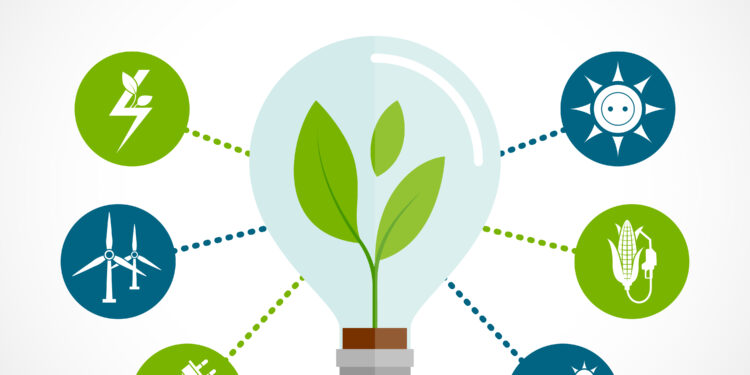Sustainable Energy Practices: Reducing Load and Saving Costs


Table of Contents
Key Takeaways
- Understand the significance of sustainable energy practices in daily life.
- Learn how reducing energy load can lead to cost savings.
- Explore various strategies for reducing energy consumption at home and in businesses.
The Importance of Energy Conservation
The drive to conserve energy is now more pressing than ever. Not only does energy conservation result in direct financial savings, but it also significantly mitigates the adverse impact of energy consumption on the environment. With the increased awareness of climate change, conserving energy has become a top priority globally. Programs such as Take a Load Off Texas showcase innovative methodologies that allow for effective energy management, emphasizing how individuals and organizations can adjust energy supplies without sacrificing comfort or efficiency.
Adopting energy-efficient practices helps reduce reliance on fossil fuels, decrease greenhouse gas emissions, and create sustainable living conditions.
Simply put, the importance of conservation extends beyond immediate benefits. By safeguarding precious natural resources and minimizing our carbon footprint today, we ensure sustainability for future generations. This long-term perspective is essential as global populations grow and natural resources become increasingly scarce.
Understanding Energy Load
The term energy load signifies the total energy consumed by electrical appliances and devices over a set period. It’s a critical metric for understanding overall energy consumption patterns within homes or businesses. High energy load times, often corresponding to peak electricity demand, strain the power infrastructure, making it crucial to manage and mitigate these peak loads. By delving into these consumption patterns, individuals and businesses are empowered to implement targeted strategies that can lead to decreased usage and significant savings.
Understanding your energy load doesn’t just stop at awareness. It involves leveraging tools and technologies to monitor usage in real time, making it possible to forecast and reduce consumption efficiently. This proactive approach supports a more resilient energy system and contributes to a more sustainable global energy landscape.
Strategies to Reduce Energy Load
Adopting strategies to reduce energy load is a practical step towards achieving energy efficiency without compromising lifestyle quality. One of the most effective methods is integrating smart home innovations, such as smart thermostats, which enable users to adjust their heating and cooling systems more efficiently. These advanced systems adjust temperatures based on user preferences, weather changes, and occupancy patterns, thereby optimizing energy use.
- Smart Thermostats: Implementing smart thermostats can result in up to a 10-15% reduction in heating and cooling bills by automatically adjusting to optimal settings while maintaining comfort levels.
- Energy-Efficient Appliances: Upgrading to appliances that carry Energy Star ratings or equivalent can lead to substantial reductions in energy consumption. These appliances use less energy to perform their functions without losing effectiveness.
Simple acts, such as replacing traditional incandescent bulbs with energy-efficient LEDs or CFLs and utilizing power strips to avoid phantom loads from electronics, can lead to significant electricity savings over time. Collective implementation of these strategies can drastically diminish a household’s overall energy expenditure.
Impact of Reducing Energy Load at Home
Reducing energy load at home can have a profound impact not only on individual finances but also on a larger ecological scale. For example, a household that actively manages its energy use can achieve significant cost savings, trimming its monthly energy expenses by as much as 30%. This has been evidenced through various case studies and reports highlighting how minor adjustments in energy use can accumulate substantial financial benefits over time.
Moreover, homes designed or retrofitted for energy efficiency tend to enjoy higher property values. Prospective buyers are increasingly valuing energy-efficient features, recognizing both the cost-saving benefits and the contributions to environmental sustainability.
Business Benefits of Energy Management
Businesses, regardless of their size, can substantially benefit from stringent energy management practices. Beyond trimming costs, effective energy management strategies enhance operational efficiency and foster product and service delivery innovation. By focusing on energy audits, businesses can pinpoint areas of inefficiency and implement solutions that bring long-term savings and sustainability.
For companies leading in sustainability efforts, the benefits are holistic—improving both the bottom line and corporate reputation. Sustainable practices often resonate well with consumers and investors who increasingly prefer organizations committed to environmental responsibility. Not only does this create a competitive edge in the market, but it also attracts eco-conscious clients and partners, shaping a brand image synonymous with sustainability.
The Role of Technology in Energy Management
Cutting-edge technology plays an indispensable role in modern energy management. Innovations in the Internet of Things (IoT) enable real-time monitoring of energy consumption, allowing for data-driven decisions that promote energy efficiency. Devices such as smart meters and sensors facilitate the tracking of energy patterns, offering insights that inform energy-saving actions.
Moreover, energy management systems integrate easily into existing infrastructure, providing predictive analysis and automation capabilities that help manage load efficiently during peak times.
Conclusion: The Path Forward
Concluding, the integration of sustainable energy practices into our daily routines presents a myriad of benefits extending to fiscal savings as well as ecological preservation. The journey towards energy efficiency may require a shift in habits and initial investments, but the resultant rewards are both impactful and enduring. By reducing our energy load at both the household and corporate levels, we not only pave the way for a more sustainable planet but also foster environments that thrive economically.
The deliberate actions we take today toward energy conservation will determine the quality of life for generations to come, ensuring a future where energy resources are accessible, affordable, and clean.






